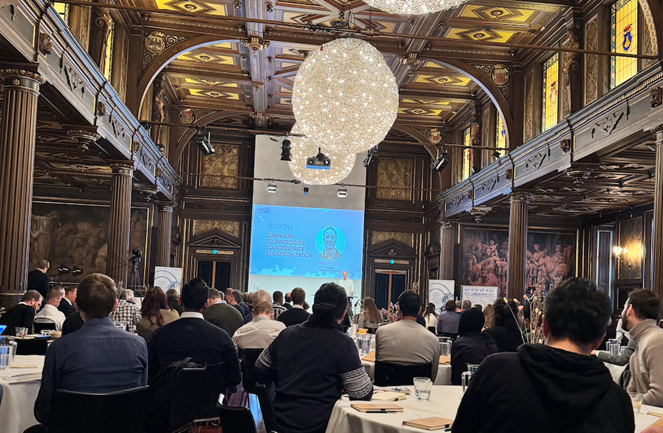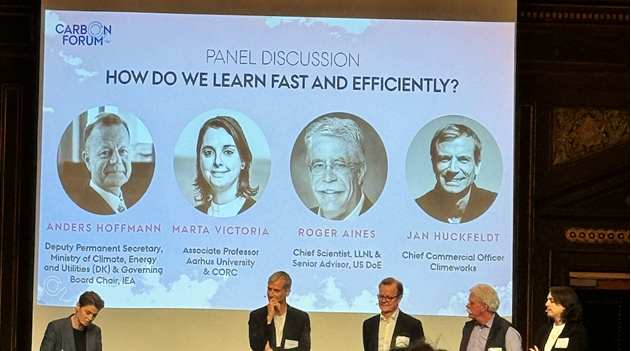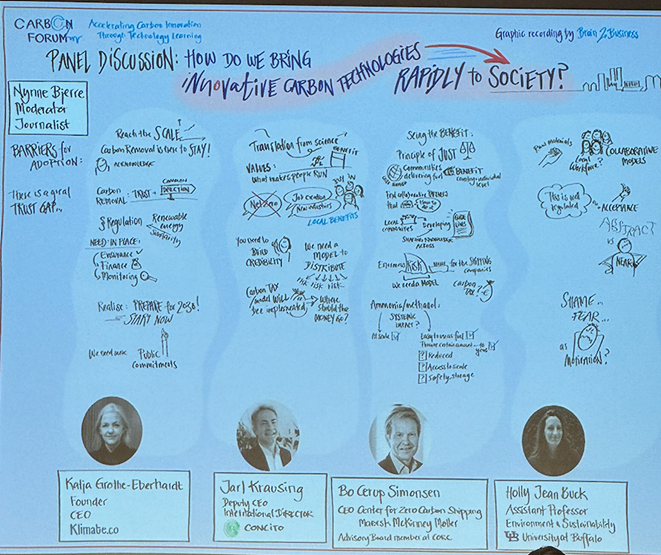This year, GSGroup had the opportunity to participate in the Novo Nordisk Foundation CO2 Research Center’s second annual Carbon Forum, with an emphasis on the theme “Accelerating Carbon Innovation Through Technology Learning.”
The focus was on how technology can solve climate challenges, and in particular on the parallels between photovoltaic technology and the development of new coal technologies.
– This is a subject that is difficult and intangible for most of us, but if you scratch the surface, you see that this is something that most industries can benefit from, says Agnes Levander, Head of Marketing Scandinavia at GSGroup.
A major highlight was the discussion on the untapped potential of carbon capture in the ocean, a topic highlighted for its promising prospects for mitigating climate change.
The conversation then turned to the urgent need to transition the shipping industry to greener practices and the need for developments such as green corridors, scalable fuel options and increased energy efficiency.

Transport, increased costs and the environment
One of the questions addressed by Bo Cerup-Simonsen, CEO of the Maersk McKinney Møller Center for Zero Carbon Shipping, and advisory board member of Corc. Is it possible to decarbonise shipping?
– Yes, it is technically possible. If we look at technologies that are available today and those that will become available in the next five years, we can say, yes, we can decarbonize deep sea shipping with new technologies, says Cerup-Simonsen.
But if you look at this through regulations that need to be done, you see a quite complex landscape, because now you have to get governments all over the world to allow storage of new types of fuel and have new safety procedures, etc. So there is a huge amount of work to do on the regulatory side, says Cerup-Simonsen.
– Finally, it also has to make sense on the commercial and financial side, and here’s the thing that these new solutions, it’s going to be more expensive than the fossil-fueled solution. There is no doubt about it.
Many of the challenges are the same whether transport is by sea or by land.
– Transportation costs will increase by 20-40%, perhaps even more in some cases. If you look at this in isolation and say that now the carbon neutral fuel is competing with the fossil fuel solution, there will not be a willingness to pay in most markets. That’s just the way it is, said Cerup-Simonsen, following up with a concrete example.
– For example, if you buy an electric vehicle today and the cost of that vehicle is $100,000, you would need to add about $1,000 for the vehicle to be completely carbon-free. But we can’t mobilize that supply chain, so you can’t tick a box and pay an extra $1,000 and get a carbon-free product.
This is part of the challenge we have to solve.
The forum concluded with a focus on the social acceptability of carbon technology, an aspect that underlined its crucial role in the successful implementation of such innovations.

Moderator Nynne Bjerre Christensen led the discussions while Anna Munck Laybourns added a visual layer to the exchange of ideas. This made the forum both informative and visually impactful, says Levander of GSGroup.

– It is important for GSGroup to be part of these discussions simply to know what the focus is at local, national and global level. In this way, we can learn more about expectations and how we can deliver the best offer to our customers today and in the years to come, says Levander.
*Carbon Forum is a forum, repeated annually, targeting decision-makers, industry leaders, officials, researchers, various organizations, and other influential stakeholders. It is an important hub for in-depth discussions on synergies between technological, economic and socio-economic aspects of the ecological transition. The Forum highlights our challenges and outlines the need to develop and implement holistic strategies and solutions for a greener future.
